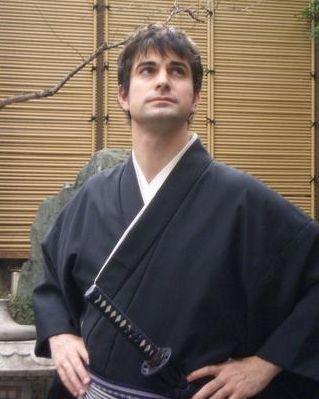Ottawa, Charest at odds on Québécois meaning
CAMPBELL CLARK
From Wednesday's Globe and Mail
From Wednesday's Globe and Mail
MONTREAL — The thorny issue of defining just who is Québécois continued to embroil the main political parties Tuesday, with Quebec Premier Jean Charest asserting that everyone who lives in Quebec, including aboriginals, is part of the Québécois nation.
But for Liberal delegates at this week's leadership convention in Montreal, debate on the issue will almost certainly be shelved. Delegates are being asked to change convention rules so they can abandon discussion of the policy resolution calling for Quebec to be recognized as a “nation within Canada.”
The resolution had threatened to become a divisive flashpoint at the convention — before Parliament passed a similar motion on Monday.
That motion, which recognized the “Québécois” as a nation, was passed with a heavy majority in the Commons. Since then, however, politicians of all stripes have been weighing in on what they think it means.
Mr. Harper's senior Quebec minister, Lawrence Cannon, said Monday the nation is not all Quebeckers, and suggested it includes only francophones. On the other hand, the government's Senate leader, Marjory LeBreton, said “nation” does include all Quebeckers.
In Quebec City, however, Mr. Charest said no one should have any doubt about who is in the Québécois nation.
“Let's not stumble over what it means when we talk about the Quebec nation. We are talking about every citizen regardless of their origins. We are also talking about the First Nations as well as the Inuit,” he said in Quebec's National Assembly.
“This definition of nation is inclusive. It doesn't seek to exclude anyone. ... And in no way does it contradict our Canadian identity.”
Mr. Charest tabled a motion Tuesday stating that the National Assembly was “delighted by this significant gesture,” insisting that it “represented an important progress for Quebec.”
The Quebec Premier has argued that recognizing Quebec as a nation could eventually influence how the Supreme Court interprets Quebec laws. The province has a different approach than the federal government on a number of important issues, from the way Quebec treats its young offenders to its claim over offshore drilling rights in the St. Lawrence River. Mr. Charest suggested that he could use his newfound status to argue his case before the courts.
On Monday, federal Intergovernmental Affairs Minister Michael Chong quit Mr. Harper's cabinet over the Québécois resolution, complaining that it recognized an ethnic nationalism he cannot support.
Tuesday, all three provincial party leaders in Quebec said they reject the notion of ethnic nationalism in Quebec, and Bloc Québécois Leader Gilles Duceppe peppered Mr. Cannon in the Commons for saying it does not include all Quebeckers. He drew an unclear response from Mr. Cannon.
“It's an inclusive definition that takes in all of the Québécois who live in the Québécois territory,” Mr. Cannon said.
A poll aired on the TVA network found that in Quebec, 64 per cent of respondents said they considered the Québécois a nation, compared with only 15 per cent in the rest of Canada, according to the survey by Léger Marketing.
The House of Commons motion, adopted on Monday, has spread confusion because the French version also refers to Québécois, which translates as “Quebecker” — a broader definition that means anyone who lives in Quebec.
“No wonder there's confusion — outside of Quebec, they're reading the English version,” said Antonia Maioni, director of the McGill Institute for the Study of Canada. “It's an unfortunate use of words in English. Something got lost in translation.”
Daniel Weinstock, a professor of political philosophy at the University of Montreal, said the term Québécois carries the suggestion of “ethnic lineage.”
“If you want to refer to the whole of society, you say Quebecker, not Québécois,” he said, adding that Prime Minister Stephen Harper made the choice deliberately to avoid the politically explosive step of recognizing a distinct nation within Canada.
“When one chooses Québécois rather than the easily available Quebecker, it's for a reason,” he said. “But this is a clear case of a politician believing it can control the genie he's let out of the bottle, and he can't.”
The distinction may be a semantic debate, and legal scholars have said that a Commons resolution has no legal or constitutional impact. But it raises an echo from the late-1990s debate over whether Quebec could be partitioned if it separates, with part of its territory remaining in Canada: Sovereigntists argued that under international law, nations have the right to self-determination, and territorial integrity — so Quebec could not be divided.
After weeks of talks with leadership-campaign strategists anxious to avoid a nasty and unpredictable battle between delegates, the two sponsors of the original Liberal motion, Marc Belanger and William Hogg, said they will withdraw the motion on the convention's first working day Wednesday.
The move glosses over divisions within the Liberal Party: Three leadership candidates, including third-place contender Gerard Kennedy, opposed the government motion to recognize Quebeckers as a nation, and 15 Liberal MPs also broke ranks with their party.
The proposal sparked a backlash outside Quebec against front-runner Michael Ignatieff, the only major contender to wholeheartedly endorse the resolution. “Delegates came forward with this initiative, it was one of the forces sparking a very, I think, positive resolution in the House of Commons last night. I don't think anyone's climbed down,” Mr. Ignatieff said.
Rival Bob Rae, who enters the convention in second place, said he did not want to debate the definition of the Québécois nation — and reminded people he didn't bring it up.
Last night, rival candidate Stéphane Dion said the Commons motion does not end the debate in Canada because some will continue to argue the Quebec nation should exist outside Canada.
With reports from Rheal Seguin, Ingrid Peritz, Jeff Sallot, Bill Curry and Brian Laghi
.
.
The Globe and Mail

No comments:
Post a Comment